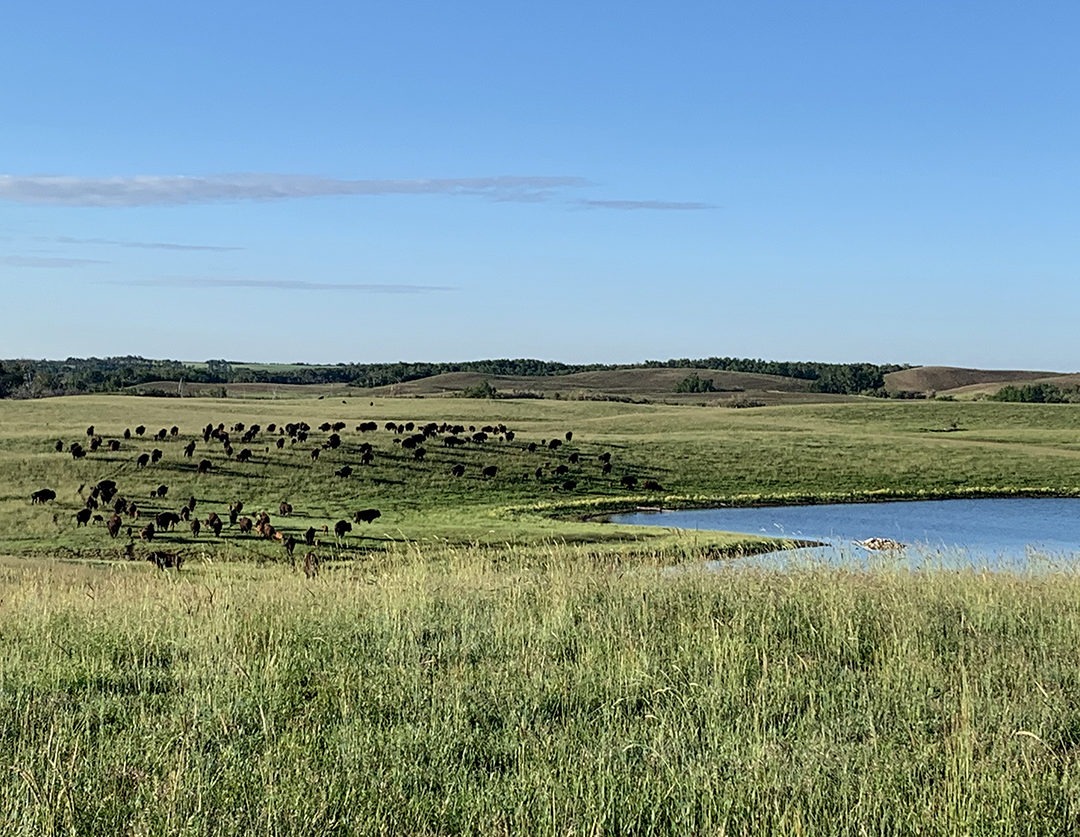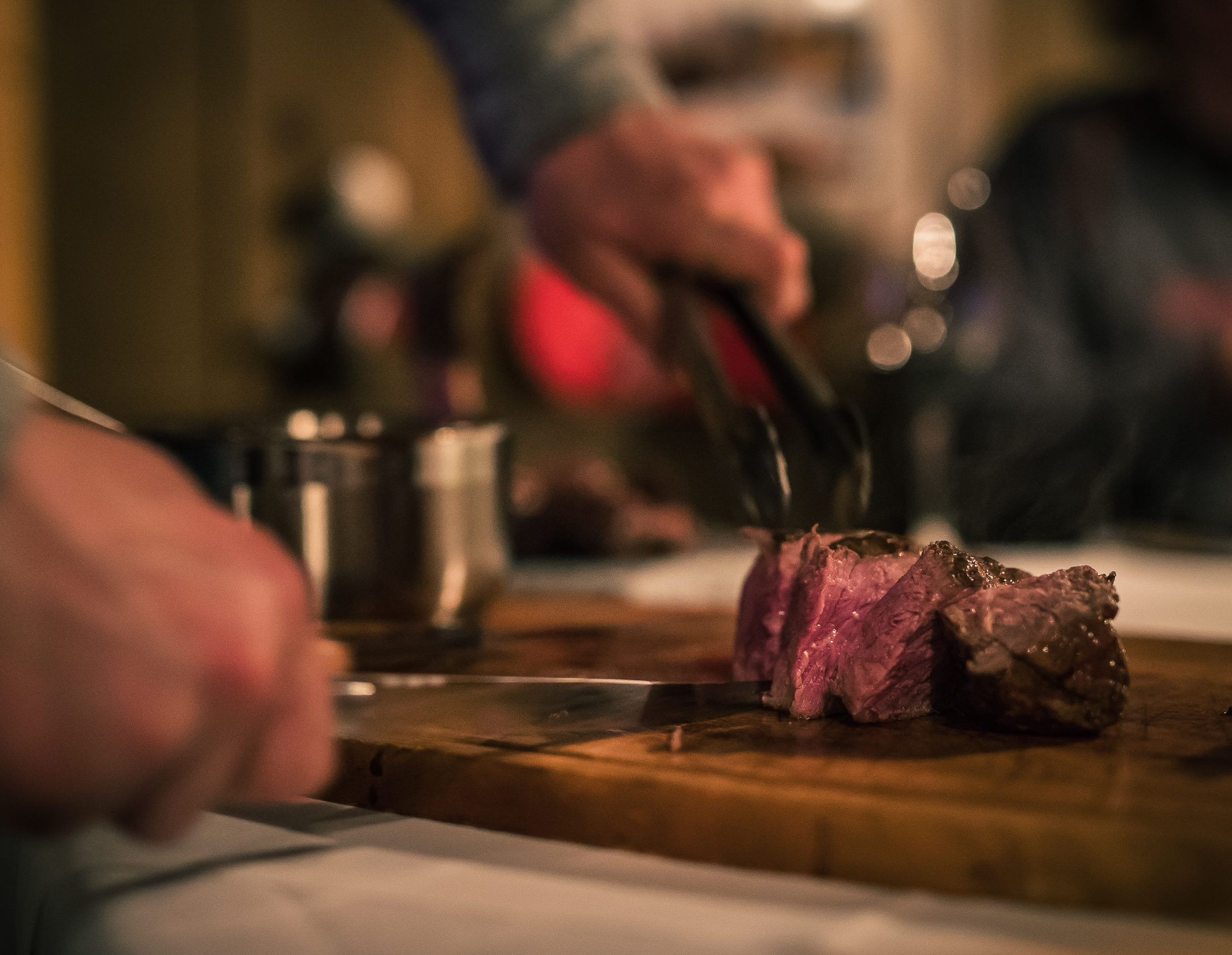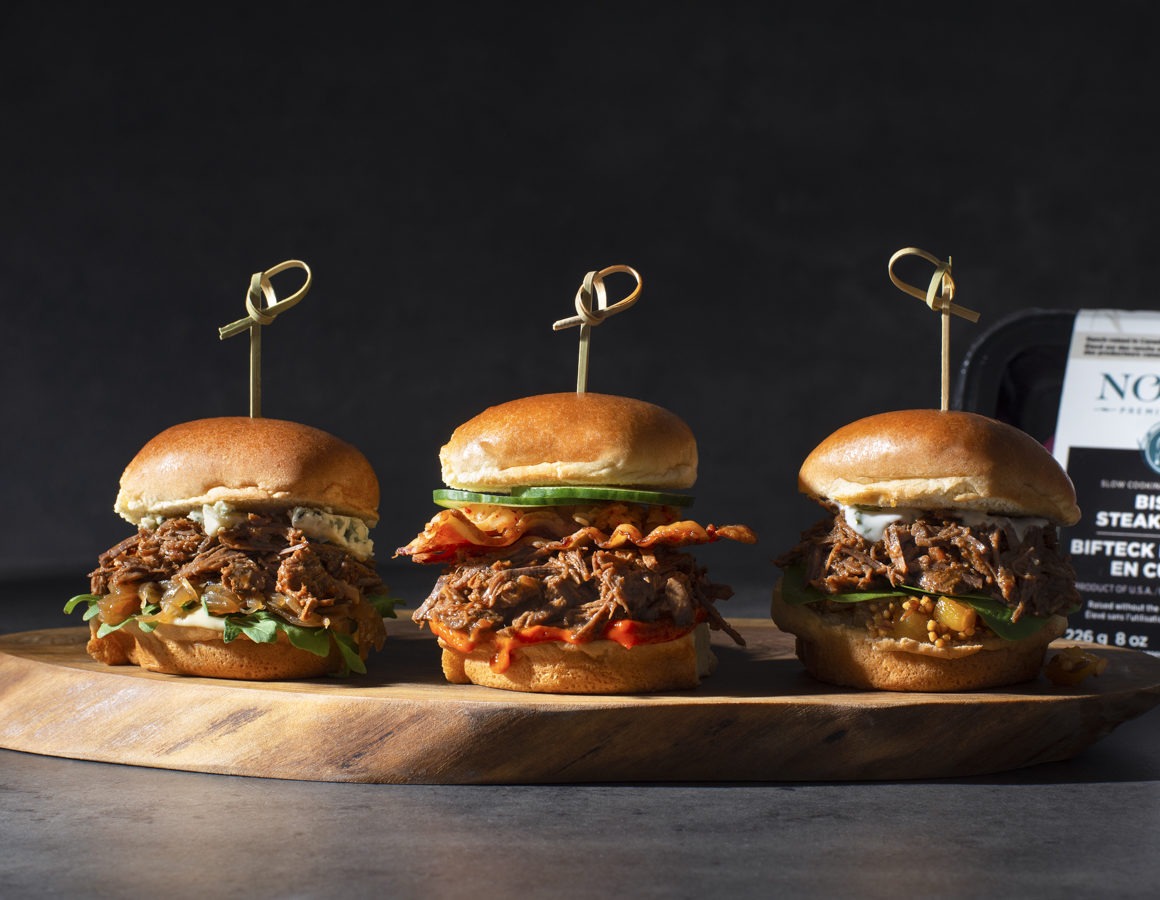Sustainably raised for a healthy planet
The future is regenerative ranching, and at the heart of our brand is a commitment to our animals and the environment. As an animal protein, bison meat is a high value product—not just for its flavour and nutrition profile, but for how it’s raised and where. These days, for chefs and restaurant patrons, retailers and consumers, that environmental footprint is more important than ever.
We’re living up to our own values by being sustainable first, productive second – values shared by our clients.
At Noble Premium Bison, we raise bison as nature intended on 9,000 acres of native grasslands in Western Canada. We have two ranches in Saskatchewan and one in Manitoba that are owned and managed by our producer/partner Doug Griller, a third-generation rancher. Using regenerative grazing practices, we’re protecting the environment and ensuring the sustainability of the land our animals live on.
We can do this by:
- raising our bison on larger pastures to eliminate overgrazing
- maintaining a habitat that is natural to the bison and other plants and animals on the land
- utilizing good grazing practices to enhance soil fertility naturally
- avoiding pesticides and wherever possible, additional fertilizers
- undergrazing to encourage more forage that helps sequester carbon underground
Organic vs naturally raised
Consumers today are educated and discerning. They want to know what goes into the food they eat and if the animals are raised humanely. For Noble, this begins with a culture of care for both the bison and the land. They graze for most of their lives on native grassland and are never given growth hormones or antibiotics unless required for humane purposes; if this happens, that animal is treated and removed from the Noble program.
We raise our animals in a way that naturally follows their own organic rhythm. During grazing season, our bison are 100% grass fed from weaning to approximately 20 months, and are grain fed for 90 to 120 days prior to harvest. We don’t use pesticides on our pastures, but we do occasionally use fertilizers along with our organic compost. This is why we talk about our bison meat as being all natural versus organic. Using ranching practices that are actually good for the environment is more important to us than simply avoiding pesticides. By focussing on soil health, watershed restoration and biodiversity below and above ground, we’re producing healthy meat for a healthy planet.
Want to know more about bison? Check out our FAQ or email us with your questions.


What is sustainable or regenerative ranching? In our minds, sustainability starts in the ground. The importance of soil and what happens below the surface is an intricate part of being sustainable.


To regenerate grasslands, we need bison. By choosing to eat bison meat, consumers are supporting the regeneration of degraded landscapes, replenishing topsoil, restoring watersheds and threatened species, and ensuring bison thrive too.


Pulled Bison Sliders Three Ways bursting with a medley of flavours, these bison sliders make an impressive appetizer or dinner main that will please everyone at your table.


